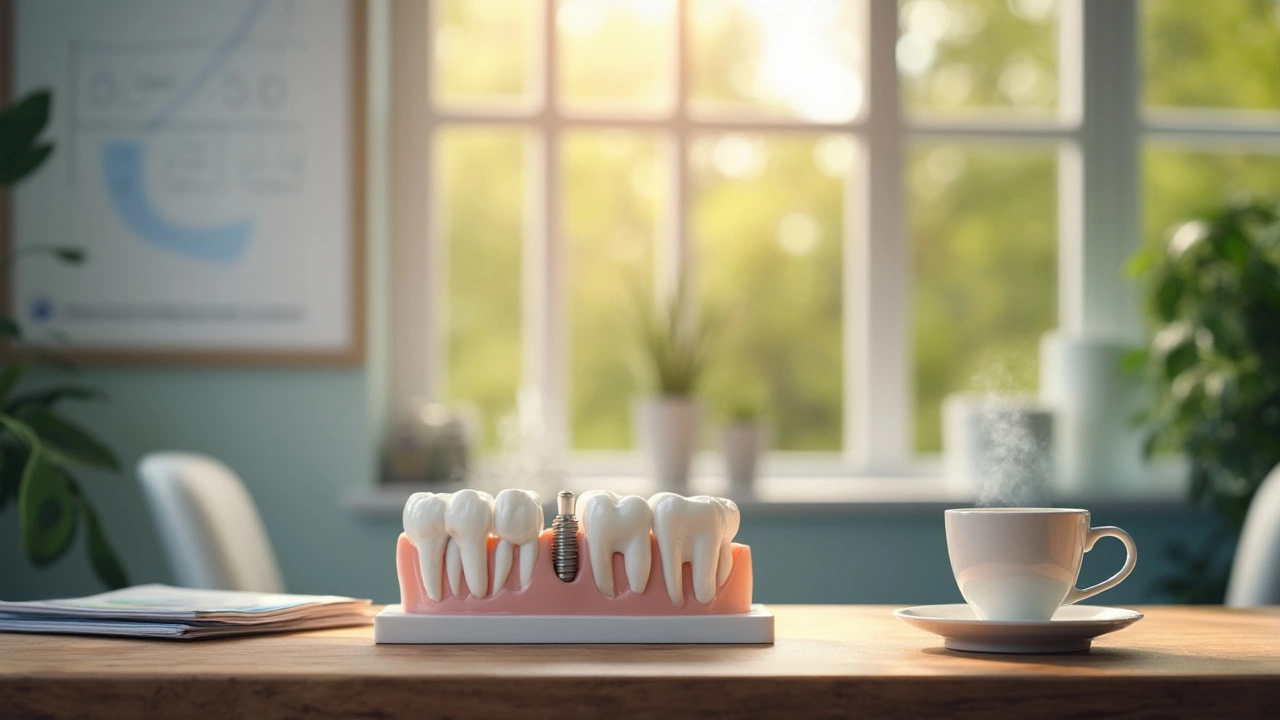Implant Lifespan: How Long Do Dental Implants Last?
Ever wonder if your dental implant will outlast your favorite pair of shoes? The short answer is: most implants can stay strong for 10‑20 years, and many last a lifetime if you look after them. Below we’ll break down what decides that lifespan and what you can do every day to stretch it even further.
What Determines How Long an Implant Stays Healthy?
First off, not every implant is created equal. The material (usually titanium or zirconia), the design, and the surgeon’s skill all play a role. But the biggest factors are yours:
- Oral hygiene. Brushing twice a day and flossing around the implant keeps bacteria away from the bone‑implant connection.
- Smoking. Tobacco cuts blood flow, slowing bone healing and raising the risk of implant failure.
- Bone quality. Strong, healthy bone grips the implant better. Conditions like osteoporosis can shorten the lifespan.
- Health conditions. Diabetes, autoimmune diseases, or chronic fatigue can interfere with healing and maintenance.
- Diet and habits. Chewing on ice, hard candy, or using teeth as tools puts extra stress on the crown and the implant below.
When all these boxes are checked, studies show that 90‑95% of implants stay functional after 10 years, and about 80% are still going strong after 20.
How to Keep Your Implant Going Strong
Good care is simple but consistent. Here are the daily habits that make the biggest difference:
- Use a soft‑bristled toothbrush and a low‑abrasive toothpaste. Too harsh a scrub can wear away gum tissue around the implant.
- Floss with a floss threader or an orthodontic floss. It reaches the tiny gap between the crown and gum where plaque loves to hide.
- Rinse with an alcohol‑free mouthwash containing chlorhexidine once a week. It fights the bacteria that cause gum inflammation.
- Visit your dentist for a check‑up and professional cleaning at least twice a year. They’ll spot early bone loss before it becomes a problem.
- If you smoke, try to quit. Even cutting back can improve blood flow and give your implant a better chance to last.
Pay attention to warning signs. If you feel a new ache, notice swelling, see the gum recede, or the crown feels loose, call your dentist right away. Early intervention can often save the implant.
When an implant does fail, it’s usually because of infection, overload, or fracture of the crown. In those cases, replacement is possible, but the cost will be higher than the original placement. That’s why keeping the implant healthy from day one saves money in the long run.
Bottom line: a well‑placed dental implant can last decades, but its lifespan isn’t set in stone. Your daily habits, overall health, and regular professional care are the real game‑changers. Treat your implant like any other part of your body—give it clean air, good food, and a little routine maintenance, and it’ll keep smiling with you for years to come.

How Long Do Tooth Implants Really Last in the UK?
Discover the lifespan of tooth implants and learn how long they typically last in the UK. Explore factors that affect their durability and get practical tips on extending their life. Find out what signs indicate when an implant may need attention and how to properly care for it. Gain insights into the average timeline for implant replacement and the best practices for maintaining your dental health.
Categories: Dental Implants UK
0
